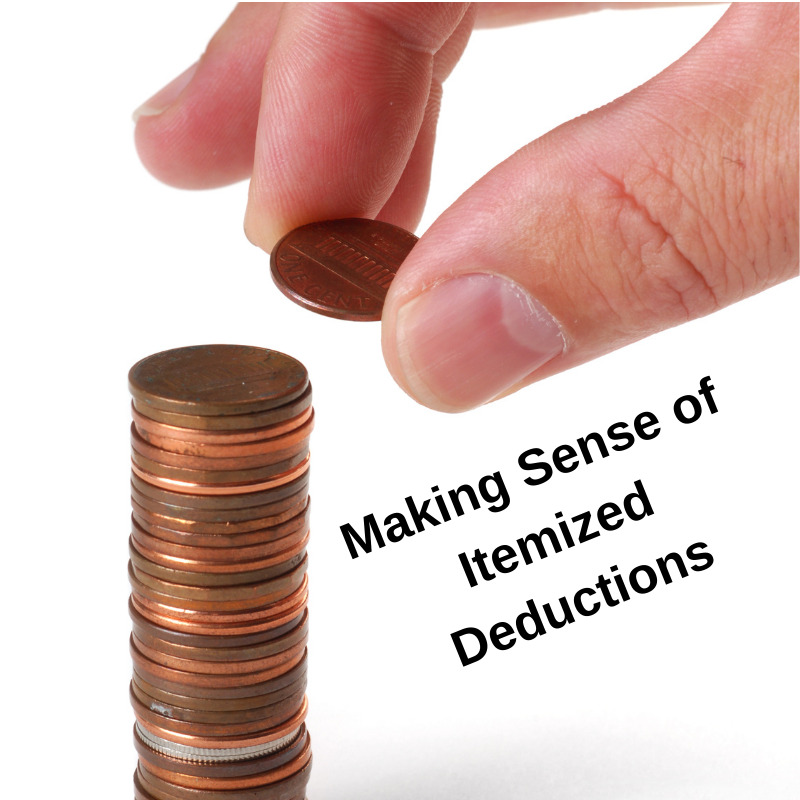Written by: Lynda Lander, Associate Advisor
If you are a homeowner and you are above the standard deduction, chances are you or your tax preparer have itemized your deductions.
These deductions include, but are not limited to:
- Home mortgage interest payments
- City/state/school property taxes
- Personal property taxes
- State income taxes
- Other miscellaneous deductions.
First, you need to determine if you qualify for itemized deductions for the 2021 tax year. You must meet the standard deduction of: $12,550 for single, $18,800 for head of household, and $25,100 for married filing joint.
Once these criteria are met, you need to gather your documentation for itemizing. These are just a few examples and each of these categories have limitations. For example:
- Medical costs
- Limitations for medical, dental, prescriptions and any qualifying medical payments that is in excess of 7.5% of your adjusted gross income (AGI).
- This would also include certain travel costs and the number of miles driven to doctor’s appointments
- Taxes paid
- As in the previous years, this is capped at $10,000. These taxes can be state and local sales tax, income tax or real estate property taxes
- Interest paid
- You can deduct the interest paid on your mortgage. If you purchased your home after December 14, 2017, the maximum amount of indebtedness you can deduct the interest for is $750,000 of mortgage debt. This would also include Home equity lines of credit (HELOC) used for purposes of capital improvements to your home. Any portion of HELOC loans used for anything else (debt consolidation, education costs, etc.) are not deductible.
- Gifts to charity
- Contributions to charities or 501c(3) organizations are capped at 60% of your AGI.
- For the 2021 tax year, the IRS is allowing individuals who made a cash donation to charities a deduction of up to $600 (MFJ) for those taxpayers who do not qualify to itemize. This means that you can still get a small tax benefit if you donate to certain qualifying charitable organizations.
- Miscellaneous Itemized Dedications
- A few Common miscellaneous dedications that are fully deductible
- Amortizable premium on a taxable bond
- Gambling losses to the extent of gambling winnings
- Casualty and theft losses from income-producing property
- Estate taxes imposed on taxable income (income in respect of a decedent)
- A few Common miscellaneous dedications that are fully deductible
Two categories no longer covered by the TCJA law are:
- Miscellaneous (unreimbursed job expenses, professional fees including investment and tax prep fees) that were subjected to the 2% of AGI limit
- Deductions for theft and personal casualty losses.
- Only exception to this exclusion is if the personal casualty losses are attributable to a federally declared disaster. This loss would be reported on Form 4684
We know understanding the ever-changing tax laws can be challenging. As always, do not hesitate to Contact our Team for more information, clarification or discussion.







